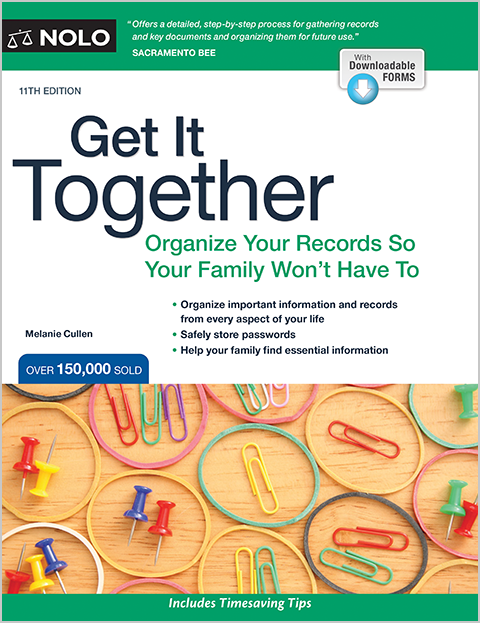The Affordable Care Act bans discrimination based on sex and gender identity in healthcare.
Many lesbian, gay, bisexual, transgender, queer, questioning, non-straight, non-cisgender (LGBTQ) people have been denied access to quality health care and services. Some health care providers are ill-informed, ask inappropriate questions, or even refuse to treat LGBTQ patients. Fear of discrimination can lead LGBTQ people to delay or go without treatment, which can lower their quality of life, contribute to disabling illness, or lead to premature death.
The federal civil rights protections in the Affordable Care Act (Section 1557) guard LGBTQ people from discrimination based on sex in any program or facility that gets federal funding for health care services, including Medicare. And many—but not all—states have antidiscrimination laws that protect LGBTQ people from being unfairly treated in public places, including doctors' offices and hospitals.
Federal Antidiscrimination Law
Prior to the passage of the Affordable Care Act (ACA) in 2010, no federal law prohibited sex discrimination in health care. Now, Section 1557, the antidiscrimination section of the ACA, bars discrimination based on race, color, national origin, sex, age, or disability in all health care programs or activities that receive federal funding. (42 U.S. Code § 18116 (2022).)
The Obama administration interpreted Section 1557's ban on sex discrimination to include discrimination based on gender identity. The Trump administration briefly reversed that reading of the law until it was restored by the Biden administration in 2021.
Section 1557 applies to:
- health programs and activities that receive funding from the Department of Health and Human Services (HHS)
- health programs administered by HHS, and
- health insurance marketplaces.
For example, Section 1557 applies to hospitals that accept Medicare, doctors who receive Medicaid payments, and federal programs like Head Start.
Federal antidiscrimation protections have increased LGBTQ access to health care and services in many ways, including:
- explicitly requiring federally funded health care programs to serve eligible individuals regardless of sex, sexual orientation, and gender identity
- enhancing hospital visitation rights for same-sex couples
- ensuring equal treatment of the LGBTQ community in the area of advance healthcare directives, and
- prohibiting unfair treatment of HHS employees and applicants based on gender identity.
State Antidiscrimination Law
Some states have antidiscrimination laws that prohibit discrimination in "public accommodations." Public accommodation laws typically protect LGBTQ people and others in places like stores, restaurants, hospitals, and doctors' offices—anywhere other than home, work, or school.
As of 2022, over 20 states have public accommodation laws explicitly barring discrimination based on sexual orientation and gender identity. An equal number of states have no laws barring LGBTQ discrimination in public accommodations. The remaining states prohibit sexual orientation discrimination only or interpret existing prohibitions on sex discrimination to include discrimination based on sexual orientation and gender identity.
State laws and policies on private insurance, Medicaid, and state employee benefits also vary widely. Some states—like California and New York—protect LGBTQ people from being unfairly denied health insurance coverage or being unfairly excluded from coverage for certain health care procedures on the basis of sexual orientation or gender identity. Other states—like Arkansas—explicitly permit insurers to refuse to cover gender-affirming care.
An emerging hot-button issue in 2022 is gender-affirming medical care for transgender youth. As of March 2022, over a dozen states have restricted access to gender-affirming care or are currently considering laws that would do so. Many of the laws carry criminal penalties for health care providers, and sometimes families, who provide or seek gender-affirming care for minors.
AMA Ethics Opinions on LGBTQ Discrimination
Historically, medical professionals have contributed to bias against LGBTQ people. But the American Medical Association (AMA) is now working to expand access to medical services, reduce stigma in treating LGBTQ patients, and break down discriminatory barriers to health care.
The AMA Code says: "Physicians who offer their services to the public may not decline to accept patients because of race, color, religion, national origin, sexual orientation, gender identity or any other basis that would constitute invidious discrimination."
In fact, the AMA has adopted dozens of rules and opinions calling for the equal treatment of gay, lesbian, bisexual, and transgender patients, doctors, and medical students. The AMA supports access to gender-affirming care and the end of discredited practices like so-called "conversion therapy."
Can Doctors Refuse to Treat LGBTQ and Transgender Patients?
A few states have laws that allow businesses and government officials to deny services, including health care (except in emergency situations), to LGBTQ people if doing so would conflict with sincerely held religious beliefs. For example, a doctor in these states may refuse to provide fertility treatments to same-sex couples, hormone-replacement therapy for transgender people, or counseling for bisexual people.
Religious exemptions (sometimes called conscious clauses) are not new in medicine. Almost immediately after Roe v. Wade legalized pre-viability abortions nationwide in 1973, Congress passed a law clarifying that health care providers, hospitals, and clinics that receive federal funding don't have to provide abortions or sterilizations if they have religious objections to the procedures. A number of states have abortion-related conscious clauses too.
But LGBTQ-related religious exemptions for health care providers might conflict with Section 1557 of the ACA, which applies to nearly every hospital, insurer, and private practice in the country. So, an LGBTQ person who lives in a state with a broad conscious clause, may be able to file a federal lawsuit against a doctor who refuses to provide gender-affirming care or fertility treatments based on that person's sex, sexual orientation, or gender identity.
What to Do If You Can't Get Treatment
If you believe a doctor or employee has refused to treat you because of your sex, sexual orientation, or gender identity, you can do any of the following:
- Explain your concerns to the physician. Provide the doctor with the AMA ethical rules and applicable federal and state antidiscrimination laws.
- Report the behavior to another physician—either another doctor in the practice group or another doctor you know.
- Lodge a complaint through the hospital or group practice's grievance mechanism (not all groups have these).
- File a complaint with your state medical society or medical licensing board. These organizations have investigative bodies that can review the doctor's conduct, and may be able to take disciplinary action against the physician's medical license.
- If your complaint is against a hospital or health care organization, contact the American Hospital Association (AHA) or the Joint Commission on Accreditation of Healthcare Organizations (JCAHO).
- If your complaint is against a non-physician health care professional (like a dentist, psychologist, optometrist, nurse), contact the appropriate professional association and licensing board for that group.
You can also file a civil rights complaint with the HSS Office of Civil Rights (OCR). The OCR will investigate your complaint and potentially get the program or provider to change its discriminatory practices.
Legal Resources on Healthcare Discrimination
If you would like to file a civil lawsuit, talk to a lawyer. You can typically file a lawsuit instead of or in addition to filing a complaint. Learn more about hiring and working with a lawyer. You can also connect with a lawyer directly from this page.
Lambda is a national legal organization whose mission is to protect the civil rights of LGBTQ people. Lambda's Legal Help Desk provides information and resources relating to discrimination based on sexual orientation, gender identity, gender expression, and HIV status.



